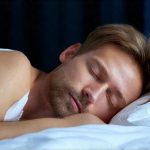Many people living with overactive bladder (OAB), nocturia (frequent nighttime urination), or other urinary concerns find their sleep profoundly disrupted. This isn’t just about inconvenience; chronic sleep loss impacts every aspect of well-being, from mood and cognitive function to immune response and overall health. It creates a vicious cycle: poor sleep often exacerbates bladder symptoms, leading to more frequent trips to the bathroom and further sleep deprivation. Understanding this interplay is the first step toward reclaiming restful nights and improved quality of life.
This article will explore the intricate connection between sleep and bladder function and offer practical strategies for building a sleep schedule designed to minimize nighttime disruptions. It’s important to remember that everyone is different, and finding what works best requires experimentation and, ideally, consultation with healthcare professionals. The goal isn’t necessarily eliminating all nighttime awakenings (though that’s wonderful if achievable!), but rather minimizing their frequency and impact so you can experience restorative sleep. We will focus on building a routine – one that prioritizes bladder health and encourages consistent, quality rest.
Optimizing Your Sleep Environment & Routine
A conducive sleep environment is paramount to achieving restful sleep, especially when managing bladder concerns. It’s more than just having a comfortable bed; it’s about minimizing stimuli and creating a sanctuary for relaxation. Consider your bedroom’s temperature – most people sleep best in a cool room (around 65-68°F or 18-20°C). Darkness is also key, so invest in blackout curtains or an eye mask if needed. Soundproofing can be helpful too, or using white noise to mask disruptive sounds. Beyond the physical environment, establishing a consistent bedtime routine signals to your body that it’s time to wind down.
This routine should be calming and predictable. Avoid screen time (phones, tablets, computers) at least an hour before bed, as the blue light emitted from these devices can interfere with melatonin production – the hormone regulating sleep. Instead, opt for relaxing activities like reading a book (a physical book, not on a tablet!), taking a warm bath, listening to calming music, or practicing gentle stretching. Consistency is crucial: going to bed and waking up around the same time each day, even on weekends, helps regulate your body’s natural sleep-wake cycle (circadian rhythm). A disrupted circadian rhythm can worsen both bladder symptoms and sleep quality.
Finally, think about your pre-sleep hydration strategy. While staying adequately hydrated throughout the day is vital for overall health, avoid drinking large amounts of fluids in the 2-3 hours before bedtime. This doesn’t mean depriving yourself of water, but being mindful of intake can significantly reduce nighttime bathroom trips. Consider timing your fluid intake around activities and spreading it out throughout the day rather than consuming most of your daily allowance right before sleep.
Dietary Considerations for Bladder & Sleep
What you eat and drink can dramatically impact both bladder function and sleep quality. Certain foods and beverages are known irritants for the bladder, potentially increasing urgency and frequency. Common culprits include caffeine, alcohol, carbonated drinks, artificial sweeteners, spicy foods, citrus fruits and tomatoes (for some individuals). While eliminating these entirely isn’t always necessary or desirable, identifying your personal triggers can be incredibly helpful. Keeping a food diary alongside a bladder diary (tracking fluid intake, urination frequency, and any associated symptoms) can help pinpoint specific sensitivities.
Beyond avoiding irritants, focusing on foods that support bladder health and promote sleep is beneficial. Foods rich in magnesium (leafy greens, nuts, seeds) and potassium (bananas, sweet potatoes) can contribute to muscle relaxation and overall well-being. Tryptophan-rich foods (turkey, eggs, milk) are precursors to serotonin and melatonin, which play a role in regulating mood and sleep. Herbal teas like chamomile or valerian root may promote relaxation, but be cautious about their potential diuretic effects – sip them earlier in the evening rather than right before bed.
Importantly, remember that dietary changes should be gradual and personalized. What works for one person may not work for another. Always discuss significant dietary modifications with your doctor or a registered dietitian, especially if you have underlying health conditions. A balanced diet is key, prioritizing whole foods and minimizing processed options.
The Role of Pelvic Floor Exercises
Pelvic floor exercises, often referred to as Kegels, are frequently recommended for managing urinary incontinence and OAB symptoms. While they aren’t a quick fix, consistent practice can strengthen the muscles that support the bladder and urethra, improving bladder control and potentially reducing urgency and frequency – even at night. However, it’s vital to perform them correctly. Improper technique can be ineffective or even worsen symptoms.
A physical therapist specializing in pelvic floor health is the best resource for learning proper technique. Generally, Kegels involve contracting the muscles you would use to stop the flow of urine midstream (though this should not be done regularly as a testing method). Hold the contraction for a few seconds, then relax. Repeat several times throughout the day. It’s important to focus on isolating the pelvic floor muscles – avoid engaging your abdominal muscles or buttocks during the exercise.
Beyond strengthening exercises, incorporating relaxation techniques into your pelvic floor routine can also be beneficial. Overactive pelvic floor muscles can contribute to urgency and discomfort. Techniques like diaphragmatic breathing (belly breathing) can help release tension in the pelvic region. Consistency is paramount: aim for regular practice, even if it’s just a few minutes each day.
Addressing Nighttime Anxiety & Worry
For many individuals with bladder concerns, anxiety about nighttime awakenings can actually contribute to the problem. The fear of needing to use the bathroom can lead to heightened awareness of bodily sensations and increased stress, potentially triggering urgency even if there isn’t a genuine need to urinate. This creates a self-fulfilling prophecy – worry leads to wakefulness, which reinforces anxiety.
Addressing this requires incorporating relaxation techniques into your bedtime routine. Mindfulness meditation, progressive muscle relaxation, or guided imagery can help calm the mind and reduce stress levels. Journaling before bed can also be helpful for processing worries and anxieties. Writing down your thoughts and concerns can alleviate mental clutter and promote a sense of peace.
If anxiety is significant or interfering with your daily life, consider seeking professional support from a therapist or counselor. Cognitive Behavioral Therapy (CBT) techniques can be particularly effective in managing anxiety related to bladder symptoms. Remember that it’s okay to ask for help. Don’t suffer in silence – there are resources available to support you.





















